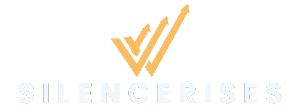Navigating the wild world of career choices can feel like trying to find a needle in a haystack—while blindfolded. But fear not! Career development theories are here to save the day, providing a roadmap to help individuals make sense of their professional paths. These theories offer insights into how people grow, change, and ultimately find fulfillment in their careers.
From Holland’s personality-based approach to Super’s life-span theory, these frameworks not only illuminate the journey but also sprinkle in a bit of humor along the way. After all, who doesn’t want to laugh while figuring out their life’s work? Dive into the fascinating realm of career development theories, and discover how they can turn career confusion into clarity, all while keeping a smile on your face.
Table of Contents
ToggleOverview of Career Development Theories
Career development theories provide essential frameworks for understanding the complexities involved in making career choices. These theories offer guidance, emphasizing the importance of personal growth and fulfillment.
Importance of Career Development
Career development shapes individual paths and aligns aspirations with job opportunities. It enhances self-awareness, allowing individuals to identify their strengths and preferences. Successfully navigating career development reduces anxiety related to job searches. The impact of career development extends beyond personal gain; organizations benefit from a skilled and motivated workforce. Investing in these theories aids in strategic planning, addressing talent management while fostering employee satisfaction.
Historical Context
Career development theories emerged from the need to understand career choices better. In the early 20th century, researchers began formulating frameworks to analyze the relationship between personality and vocational preferences. Theories like Holland’s model and Super’s lifespan perspective significantly shaped the field. Early models focused on linear career progression, but later theories recognized the non-linear nature of careers. The evolution of these theories reflects changing workforce dynamics, with a growing emphasis on lifelong learning and adaptability. Understanding this historical context informs contemporary practice and highlights the relevance of these theories today.
Major Career Development Theories
Career development theories serve as essential frameworks for understanding the complexities of career choices. They guide individuals through personal and professional growth.
Super’s Life-Span Theory
Super’s Life-Span Theory emphasizes the continuous nature of career development. It categorizes stages, including growth, exploration, establishment, maintenance, and decline, reflecting individuals’ evolving self-concepts. Each stage builds on previous experiences and transitions, underscoring the importance of adaptation and lifelong learning. This theory promotes the idea that fulfillment in careers emerges over time as individuals align their aspirations and realities. Research suggests that people derive satisfaction from engaging in roles that resonate with their values and strengths.
Holland’s Theory of Career Choice
Holland’s Theory of Career Choice focuses on the relationship between personality and career environments. It identifies six primary personality types: realistic, investigative, artistic, social, enterprising, and conventional. Each type corresponds to specific occupational environments, enhancing career satisfaction when individuals find compatibility with their traits. Furthermore, job seekers can use this theory to identify suitable career paths based on their interests and personalities. The theory aids in self-assessment, helping individuals make informed decisions about their careers.
Krumboltz’s Learning Theory
Krumboltz’s Learning Theory of Career Counseling centers on learning experiences shaping career choices. It posits that genetic endowment and environmental influences contribute to individual career paths. Learning takes place through exposure to role models and feedback, significantly impacting decision-making processes. By recognizing the dynamic interplay of experiences, individuals can better adapt to changing job markets. The theory also encourages proactive behavior in seeking opportunities, fostering resilience amid uncertainties in career development.
Contemporary Perspectives on Career Development
Contemporary theories expand career development understanding. Two prevalent frameworks are Social Cognitive Career Theory and Constructivist Approaches.
Social Cognitive Career Theory
Social Cognitive Career Theory (SCCT) examines the interplay of personal factors, environmental influences, and behavior in career decision-making. Grounded in Bandura’s concepts, it highlights self-efficacy as a crucial determinant in choosing and pursuing career paths. This theory posits that individuals with higher confidence in their skills are more likely to explore diverse opportunities. Goals and outcomes connect directly to these self-beliefs. Additionally, SCCT emphasizes the role of environmental support, such as mentoring and resources, in shaping career success. These interactions shape the individual’s approach to career development, reinforcing the importance of a holistic perspective in navigating professional choices.
Constructivist Approaches
Constructivist Approaches focus on the personal meaning individuals derive from their career experiences. This perspective emphasizes the narrative of one’s life, where career paths are viewed as a story shaped by individual values, experiences, and reflections. Career development is seen as an evolving process rather than a fixed outcome. Constructivists advocate for self-exploration and the use of life stories to uncover unique career aspirations. By understanding personal narratives, individuals can better navigate their professional journeys, aligning goals with authentic self-identity. Engaging in this reflective process encourages adaptability and resilience in a rapidly changing job market.
Application of Career Development Theories
Career development theories play a crucial role in various contexts, guiding individuals through their professional journeys.
In Educational Settings
Implementing career development theories in educational settings enriches student experiences. Educators can use Holland’s Theory to help students understand how personality traits align with different careers. Super’s Life-Span Theory emphasizes ongoing development, encouraging students to explore diverse interests over time. Workshops and counseling sessions showcasing these theories foster self-awareness. Additionally, integrating experiential learning opportunities supports students in making informed career choices. These practices create a supportive atmosphere where students can connect academic knowledge with real-world applications.
In Workplace Environments
Career development theories provide frameworks for enhancing workplace growth and satisfaction. Organizations leverage Krumboltz’s Learning Theory to understand how experiences shape employee career trajectories. Tailored training programs that reflect individual aspirations promote a culture of continuous learning. Super’s model can guide performance evaluations and career progression discussions. Incorporating self-efficacy concepts from Social Cognitive Career Theory encourages employee engagement. Therefore, aligning organizational goals with personal development fosters a motivated workforce, benefiting both employees and employers.
Future Trends in Career Development Theories
Emerging trends shape career development theories, reflecting changes in society and the workplace. Notably, technological advancements transform how individuals approach their careers.
Influence of Technology
Technology impacts career development significantly. Digital platforms facilitate remote job opportunities, allowing people to access global markets. Virtual career coaching emerges as a popular resource, offering flexible support tailored to individual needs. Additionally, artificial intelligence provides data-driven insights into career trajectories, helping individuals make informed decisions. Online learning platforms democratize education, delivering accessible skills training relevant to job markets. Integration of social media platforms promotes networking and personal branding, vital for success in competitive environments. Changes in technology require individuals to maintain adaptability as they advance through their career paths.
Shifts in Workforce Demographics
Demographic shifts drive changes in career development theories. An increasingly diverse workforce enriches insights into career choices, adapting theories to account for cultural nuances. The rise of millennials and Generation Z encourages a focus on meaningful work, motivating individuals to seek alignment between personal values and career goals. Increased participation of women and underrepresented groups in various industries highlights the need for inclusive career development frameworks. Aging populations also influence workforce dynamics, as older employees bring a wealth of experience, reshaping mentorship roles. As demographics continue to evolve, career development theories will need to adapt, ensuring relevance and support for all individuals navigating their careers.
Conclusion
Career development theories serve as essential guides in the intricate journey of professional growth. By understanding these frameworks, individuals can better navigate their career paths with confidence and clarity. The insights gained from these theories not only enhance self-awareness but also empower individuals to align their aspirations with suitable opportunities.
As the workforce evolves, the relevance of these theories continues to grow, adapting to new challenges and demographic shifts. Embracing lifelong learning and adaptability remains crucial in today’s dynamic job market. Ultimately, leveraging these theories can lead to more fulfilling careers for individuals and a more engaged workforce for organizations.



